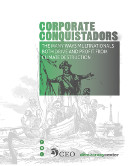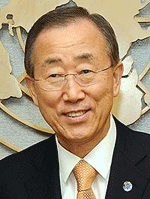Other news
Published on Thu, 2014-12-18 22:00
As the international community wades into the political discussions regarding the alternatives to the Millennium Development Goals (MDGs) after 2015 and the design of the Sustainable Development Goals (SDGs) as mandated by the Rio+20 conference, it is timely to consider the question of whether development is a matter mostly of individual effort on the part of nation-states or whether there are elements in the international economic system that could serve as significant obstacles to national development efforts. If there are obstacles in the international economic system, it is important that the post-2015 development agenda and the SDGs address the question of the elimination or the reduction of these obstacles.
The limited number of successfully developing countries since the 1950s has provoked a debate over whether the success of these countries required their success in eluding international obstacles to development. The following discussion does not have to take one position or the other. It evaluates features of the international system on the basis of how these features are conducive to enabling long-term investment toward economic diversification.
|
Published on Fri, 2014-12-12 10:39
A new report released at COP20 by Corporate Europe Observatory, Democracy Center and Transnational Institute shows how corporations causing social and environmental destruction in the Andes and Amazon are driving climate change, whilst enjoying influential seats at the climate-negotiating table. The case studies included demonstrate how corporations from the global North operating in the extractives industry use well-honed practices of political manipulation while hiding their true nature through extravagant public relations campaigns which trumpet their disingenuous environmental credentials. The consequences of these corporations’ manipulation of decision-making processes include: the opening of new gas fields that destroy indigenous territories, the decimation of local water supplies and the forced displacement of whole communities. Yet in the midst of such exploitation the writers of the report have also witnessed brave acts of resistance by local communities.
|
Published on Fri, 2014-12-05 20:00
As part of the 16 Days Campaign Against Gender Based Violence (November 25 – December 10, 2014) AWID is honoring Feminists and Women Human Rights Defenders (WHRDs) Who Are No Longer With Us and whose contributions to the advancement of human rights are very much missed.
Find out more here.
|
Published on Fri, 2014-11-28 13:42
The loss of tax revenues due to international tax evasion and avoidance significantly reduce the funds available to finance policies aimed at fulfilling the human rights of women and girls and gender justice.
Due to the structural nature of gender inequality and its intersection with other categories such as age, race-ethnicity, sexual orientation and income, women in most of societies continue to be overrepresented in the lowest quintiles of the income distribution, continue to be the most responsible for unpaid and care work, continue to be concentrated in the most precarious and poorly paid jobs, are still a minority in the spaces of representation and leadership in political, labor or territories, still face gender-based violence, human trafficking, and continue to have their sexual and reproductive rights and autonomy limited.
|
Published on Fri, 2014-11-28 13:32
As far as financial issues are concerned, the Third International Conference on Financing for Development (FfD) is shaping up to become 2015’s most important summit. If an ambitious global financing framework is not agreed in Addis Ababa next July, the success of the September summit on new Sustainable Development Goals and a post-2015 framework will also be in jeopardy. Even the climate summit in Paris at the end of 2015 risks being undermined. Before the actual FfD negotiations start in January, the UN conducted ‘a substantive informal session’ in New York from 10-13 November, which aimed to launch an open debate on the financing for development issues at stake in Addis.
|
Published on Thu, 2014-11-06 09:50
 |
In a week, Governments at the United Nations begin their preparatory meetings for the International Conference on Financing for Development(FfD) in Addis Ababa in July 2015. That conference is widely viewed as the last opportunity to agree to a package of proposals on financial, trade and global governance measures before the summit meeting in New York in September 2015 to ring down the curtain on the Millennium Development Goals and raise the curtain on new Sustainable Development Goals (SDGs). If there is nothing underlying pretty words in the outcome document of Addis, there will be no time to come to meaningful "means of implementation" for the SDGs two months later. That will condemn the global effort to devise SDGs over the past few years to empty rhetoric. Governments at the UN thus recognize that the Addis meeting must be a "success", but does anyone see the Governments of North and South coalescing around any interesting proposals? Well, they have about 3-5 months to find those proposals. Perhaps we can help move the discussion in a fruitful direction.
|
Published on Thu, 2014-11-06 09:46
1 for 7 Billion's NGO partners from across the world have written to all UN Member States to call for an open, fair and inclusive process to select the best possible candidate for Secretary-General of the UN.
Signatories include: Avaaz, Amnesty International, CIVICUS, Equality Now, FEMNET, Forum Asia, Social Watch, Third World Network, Women’s Environment and Development Organization and the World Federation of UN Associations.
|
Published on Thu, 2014-11-06 09:41
There is no job description for the world’s top civil servant, except to solve its messiest problems. There are no campaign rules, nor is there any list of qualifications, except what is left unsaid: He (and it has always been a he) must be palatable to the world powers. Now, as jockeying begins for the selection of the next secretary general of the United Nations, to be chosen in 2016, momentum is building to open up the process. A coalition of nongovernmental organizations, supported by some former United Nations diplomats, is calling for a formal application process, including transparent selection criteria, an official shortlist of contenders and a chance for all member nations to evaluate the candidates.
The effort reflects a growing frustration with the dominance of the five permanent members of the United Nations Security Council, which bargain for influence over every important office within the system, most importantly the post of secretary general. The choice is made largely in secret, in council meetings held privately and in tough negotiations among officials from the five powers.
|
Published on Wed, 2014-10-29 16:00
Third International Conference on Financing for Development, July 2015 The third International Conference on Financing for Development will be held in Addis Ababa, Ethiopia, from 13-16 July 2015. It will gather high-level political representatives, including Heads of State and Government, and Ministers of Finance, Foreign Affairs and Development Cooperation, as well as all relevant institutional stakeholders, non-governmental organizations and business sector entities. The Conference will result in an inter-governmentally negotiated and agreed outcome, which should constitute an important contribution to – and support the implementation of – the post-2015 development agenda.
|
Published on Thu, 2014-09-25 12:43
In July 2015, the international community will have the chance to change the future of finance development. Governments, civil society, trade unions and other actors will meet for the third UN conference on Financing for Development (Ffd) in Addis Ababa (Ethiopia) to take concrete decisions for the future of development and how to finance it. In the run-up to this crucial meeting, two major reports have been released which are intended to inform the upcoming debates. We have had a report from the Intergovernmental Committee of Experts on Sustainable Development Finance (ICESDF) and one from the Open Working Group (OWG) – a 30-member group nominated by the UN General Assembly to decide on the Sustainable Development Goals. Both reports should feed into future action. Disappointingly, both lack ambition and fail to present specific recommendations, something that CSOs - many in developing countries - and other actors have been calling for some time.
|
SUSCRIBE TO OUR NEWSLETTER
Submit

|









